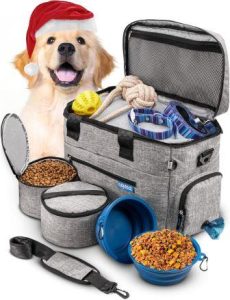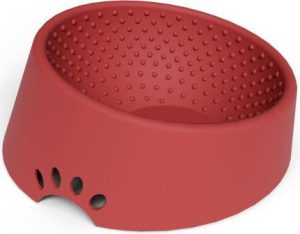In our quest to provide the best possible care for our canine companions, we often wonder what foods are safe for them to enjoy. One common question that arises is whether dogs can eat cheese. Here at PawPals Magazine, we have delved into the topic to provide you with a comprehensive guide on cheese consumption for dogs.
Many dogs are known to have a fondness for cheese, but is it safe for them? In this article, we will address this question and explore the potential risks and benefits of feeding cheese to your furry friend. We will also provide recommendations for types of cheese that are safe for dogs and tips on introducing cheese into their diet.
Key Takeaways:
- Cheese can be safe for dogs in moderation and the right types.
- It’s important to be aware of the potential risks of feeding cheese to dogs.
- Choosing the right cheese and practicing portion control is crucial.
- Cheese can provide certain nutritional benefits for dogs when included appropriately.
- For dogs with dairy sensitivities, there are alternative options available.
The Risks of Dogs Eating Cheese
When it comes to indulging our furry friends, cheese is often seen as a go-to treat. However, it’s important to be aware of the potential risks that come with feeding cheese to dogs. While cheese can be a tasty and enjoyable snack, certain factors need to be considered to ensure your dog’s digestive system and overall health are not compromised.
Cheese can affect a dog’s digestive system.
Digestive issues are one of the primary risks associated with dogs consuming cheese. This is due to a couple of reasons. Firstly, cheese contains lactose, a sugar found in milk. Dogs, particularly as they age, often have difficulty digesting lactose, leading to digestive discomfort, bloating, and even diarrhea.
“While cheese can be a tasty and enjoyable snack, certain factors need to be considered to ensure your dog’s digestive system and overall health are not compromised.”
Cheese can impact a dog’s overall health.
In addition to digestive issues, other health concerns can arise from dogs eating cheese. Cheese is high in fat and calories, which can contribute to obesity and weight gain if consumed excessively. This can lead to a host of other health problems, including heart conditions, joint pain, and diabetes.
Moreover, some types of cheese can be salty, and excessive salt intake can negatively impact a dog’s blood pressure and overall well-being.
The importance of moderation and suitable alternatives
While there are risks associated with dogs consuming cheese, it doesn’t mean that it should be completely eliminated from their diets. With proper moderation and suitable alternatives, dogs can still enjoy cheese as an occasional treat without compromising their health.
It’s crucial to monitor the amount of cheese given and ensure that it is part of a well-balanced diet. Portion control is key, as it helps prevent excessive calorie intake and potential health issues.
If you’re concerned about the risks associated with cheese or your dog has specific dietary needs, there are alternative options available. There are various dairy-free treats and snacks specifically formulated for dogs, providing a safe and enjoyable alternative to cheese.
In conclusion, while cheese can be a tempting indulgence for dogs, it’s essential to understand and address the potential risks. With moderation, suitable alternatives, and a well-informed approach to your dog’s diet, you can ensure that they enjoy a happy and healthy life.
Types of Cheese Safe for Dogs
When it comes to including cheese in your dog’s diet, it’s important to choose the right types of cheese to ensure their well-being. Not all cheeses are safe for dogs, as some can be harmful to their digestive system or overall health. In this section, we will explore the types of cheese that are safe for dogs to consume, considering both their nutritional value and potential benefits.
Before we delve into the specific types of cheese, it’s crucial to note that cheese should only be given to dogs in moderation. While cheese can be a tasty treat for our furry friends, excessive consumption can lead to digestive issues and weight gain. As responsible pet owners, we must exercise portion control and ensure that cheese is incorporated as part of a balanced diet.
Now, let’s take a look at some of the safe cheese options for dogs:
| Cheese Type | Nutritional Value | Recommended Portion Size |
|---|---|---|
| Cheddar | Rich in protein and calcium | Small cubes or shreds as occasional treats |
| Swiss | Good source of protein and Vitamin A | Small cubes or thin slices as occasional treats |
| Mozzarella | Low in sodium and high in calcium | Small cubes or shredded toppings as occasional treats |
| Cottage cheese | High in protein and low in lactose | Small spoonfuls as a protein-rich addition to meals |
These cheeses are generally well-tolerated by dogs and offer nutritional benefits that can support their overall health. However, please note that not all dogs may tolerate certain types of cheese well, especially if they have lactose intolerance or sensitivities. Always monitor your dog’s response to any new food, including cheese, and consult with your veterinarian if you have concerns.
“As with any new addition to your dog’s diet, it’s important to introduce cheese gradually and in small quantities. Watch for any signs of digestive upset, such as diarrhea or vomiting, and adjust accordingly. Every dog is unique, and what works for one may not work for another. It’s crucial to prioritize your dog’s individual needs and well-being.”
By understanding the safe types of cheese for dogs and incorporating them in appropriate portions, we can ensure that our furry companions can enjoy cheese as a special treat while maintaining their overall health and nutrition.
Moderation and Portion Control
When it comes to feeding cheese to our beloved dogs, moderation and portion control are crucial factors to consider. While cheese can be a tasty treat for dogs, overfeeding can lead to potential health issues. Here are some guidelines to help ensure your furry friend enjoys cheese in a safe and healthy manner:
- Portion Size: It’s essential to give your dog an appropriate portion of cheese based on their size and dietary needs. Larger dogs can handle slightly larger portions, while smaller dogs should be given smaller portions. As a general rule of thumb, a small piece of cheese the size of your thumb is sufficient as a treat.
- Frequency: Cheese should be treated as an occasional indulgence rather than a regular part of your dog’s diet. It is recommended to limit cheese treats to once or twice a week to prevent overconsumption and potential digestive issues.
- Balance: Cheese should always be offered as a supplement to a well-balanced and nutritious diet that consists primarily of their regular dog food. It should not replace vital nutrients provided by their usual meals.
By practicing moderation and portion control, you can ensure that cheese remains a safe and enjoyable addition to your dog’s diet. Keep in mind that every dog is unique, and it’s important to monitor their reaction to cheese and make any necessary adjustments accordingly.
Remember, when in doubt, consult with your veterinarian for personalized advice that considers your dog’s specific nutritional requirements and any underlying health conditions.
Expert Tip:
“While it’s tempting to indulge our furry friends with cheese, it’s important to remember that moderation is key. Treat cheese as an occasional reward and make sure to choose high-quality, low-fat options that are safe for canine consumption.” – Dr. Sophia Garcia, Veterinary Nutritionist
| Benefits of Moderation and Portion Control | Potential Risks of Overfeeding |
|---|---|
|
|
Benefits of Cheese in a Dog’s Diet
When it comes to canine nutrition, cheese can offer several potential benefits. While it should be given in moderation and with careful consideration, cheese can be a valuable addition to your dog’s diet.
One of the key benefits of including cheese in a dog’s diet is its nutritional value. Cheese is a good source of protein, calcium, and vitamins such as vitamin A and B vitamins. These nutrients are essential for your dog’s overall health and well-being, supporting their muscle development, bone strength, and immune system.
Moreover, cheese can be a great way to add variety and flavor to your dog’s meals. Dogs can quickly get bored with their regular diet, but adding a small amount of cheese can make their meals more enticing and enjoyable. It can also serve as a high-value treat during training sessions, motivating your furry friend to learn new commands and behaviors.
Another benefit of cheese is its versatility. There are many different types of cheese available, allowing you to choose the option that best suits your dog’s dietary needs and preferences. From cheddar to cottage cheese, you can explore various flavors and textures to keep your dog’s meals interesting.
However, it’s crucial to note that not all dogs can tolerate cheese in their diet. Some dogs may be lactose intolerant or have sensitivities to dairy products. If your dog experiences any digestive issues or allergic reactions after consuming cheese, it’s essential to consult with your veterinarian for guidance.
Quote:
At Doggie Delights, we believe that cheese can be a beneficial addition to a dog’s diet when incorporated responsibly. Our customers have seen improvements in their dogs’ coat quality, energy levels, and overall health after introducing cheese in moderation.
Dairy Alternatives for Dogs
For dogs with sensitivities or intolerances to cheese and other dairy products, there are several dairy alternatives available. These alternatives can provide similar nutrients without the potential risks associated with cheese consumption. Here are some options to consider:
1. Yogurt:
Plain, unsweetened yogurt is a great dairy alternative for dogs. It is rich in probiotics, which can promote a healthy gut and aid in digestion. However, it is important to choose yogurt without any added sugars or artificial sweeteners, as these can be harmful to dogs.
2. Cottage Cheese:
Cottage cheese is another dairy option that can be suitable for dogs. It is high in protein and low in lactose, making it easier for dogs to digest. Just like with yogurt, it is crucial to opt for plain cottage cheese without any added flavors or additives.
3. Goat’s Milk:
Goat’s milk is often tolerated better by dogs compared to cow’s milk. It contains less lactose and is generally easier on the digestive system. However, it is important to ensure that the goat’s milk is pasteurized and free from any added sugars or flavorings.
4. Coconut Milk:
Coconut milk is a non-dairy alternative that can be suitable for dogs. It is rich in healthy fats and can provide a creamy texture similar to dairy milk. However, it is crucial to choose coconut milk without any added sugars or additives.
Remember, when introducing any new food to your dog’s diet, it is essential to do so gradually and monitor their response. Some dogs may have individual sensitivities, so it’s always best to consult with your veterinarian before making any significant changes to their diet.
| Dairy Alternatives | Nutritional Benefits |
|---|---|
| Yogurt | Probiotics for a healthy gut |
| Cottage Cheese | High in protein, low in lactose |
| Goat’s Milk | Less lactose, easier to digest |
| Coconut Milk | Healthy fats, non-dairy option |
Introducing Cheese to Your Dog’s Diet
In this section, we will provide guidance on how to introduce cheese to your dog’s diet safely. We understand that you want to share delicious treats with your furry friend, but it is important to introduce new foods gradually to avoid any digestive issues or adverse reactions. By following a few simple steps, you can ensure a smooth transition and a positive experience for your dog.
Step 1: Start with a Small Amount
When introducing cheese to your dog’s diet, begin with a small piece or a tiny bit of grated cheese. This allows your dog’s digestive system to adjust to the new food without overwhelming their stomach. Pay close attention to how your dog reacts to the cheese and monitor for any signs of discomfort or intolerance.
Step 2: Choose a Safe Cheese
Not all cheeses are safe for dogs to consume. Some varieties can be high in fat and sodium, which can lead to digestive issues and other health problems. Opt for low-fat and low-sodium options such as cottage cheese, mozzarella, or cheddar. These cheeses are generally safe for dogs when given in moderation.
Step 3: Observe Your Dog’s Reaction
After introducing cheese to your dog’s diet, observe their reaction closely. Watch for any signs of gastrointestinal upset, such as diarrhea, vomiting, or excessive gas. If you notice any adverse reactions, discontinue feeding cheese and consult with your veterinarian.
Step 4: Maintain Balance
While cheese can be a tasty addition to your dog’s diet, it should never replace their regular balanced meals. Cheese should be given as an occasional treat or a small supplement to their regular food. Remember to adjust your dog’s overall diet accordingly to maintain a healthy balance of nutrients.
Step 5: Consult Your Veterinarian
If you have any concerns or questions about introducing cheese to your dog’s diet, it is always best to consult with your veterinarian. They can provide personalized advice based on your dog’s specific needs and health considerations.
By following these steps, you can introduce cheese to your dog’s diet safely and ensure their well-being. Remember to always prioritize moderation and choose cheeses that are safe for canine consumption. Treat your furry friend with love and care, and they will appreciate the occasional cheese indulgence.
Conclusion
In conclusion, dogs can enjoy cheese as long as it is offered in moderation and with careful consideration. While cheese can be a tasty and nutritious addition to a dog’s diet, it is important to be aware of the potential risks and choose appropriate types of cheese.
When feeding cheese to your furry friend, it is crucial to prioritize their health and well-being. Consider consulting with your veterinarian to determine which types of cheese are safe for your dog, taking into account any known allergies or sensitivities.
By understanding the risks associated with cheese consumption, such as potential digestive issues and the risk of excessive calorie intake, you can make informed decisions about incorporating cheese into your dog’s diet. It is essential to practice portion control and ensure that cheese is offered as an occasional treat rather than a regular indulgence.
Remember, proper nutrition is key to your dog’s overall health. While cheese can provide certain nutrients, it should not replace a balanced and complete diet specifically formulated for canines. Consider exploring other dairy alternatives for dogs who may have sensitivities or intolerances to cheese, and always prioritize their specific nutritional needs.
FAQ
Can dogs eat cheese?
Yes, dogs can eat cheese, but it should be given in moderation and with caution. While cheese may be enjoyed as an occasional treat for dogs, it is important to consider the potential risks and choose suitable types of cheese for their diets.
What are the risks of dogs eating cheese?
Dogs consuming cheese can be at risk of digestive issues such as upset stomach, diarrhea, or even pancreatitis, especially if they have lactose intolerance or if the cheese is high in fat or sodium. It is important to monitor their response and consult a veterinarian if any adverse reactions occur.
What types of cheese are safe for dogs?
Certain types of cheese, such as cheddar, mozzarella, and cottage cheese, can be safe for dogs. These cheeses are lower in lactose and fat content compared to others. It is best to feed plain, unsalted cheese and avoid any flavored or processed varieties that may contain harmful additives.
How much cheese can dogs eat?
Dogs should only have cheese in moderation and as an occasional treat. The recommended portion size depends on the dog’s size and overall diet. As a general guideline, small dogs can have around 1-2 small cubes of cheese, while larger dogs can have a slightly larger portion. Always consult with a veterinarian to determine the appropriate amount for your specific dog.
What are the benefits of cheese in a dog’s diet?
Cheese can provide essential nutrients like protein and calcium to a dog’s diet. It can also serve as a high-value training treat. Additionally, some dogs may find cheese highly palatable, making it an effective way to encourage them to take medication or consume other necessary supplements.
Are there dairy alternatives for dogs?
Yes, there are dairy alternatives for dogs who may have sensitivities or intolerances to cheese and other dairy products. Options like lactose-free milk or yogurt made from alternative sources like almond or coconut can be suitable alternatives to traditional dairy products for dogs. It’s always important to consult with a veterinarian before introducing any new foods to your dog’s diet.
How should I introduce cheese to my dog’s diet?
When introducing cheese to your dog’s diet, start with small amounts and monitor their response. Gradually increase the quantity over time if there are no adverse effects. Be mindful of any changes in their digestion or overall health. If any concerns arise, consult with a veterinarian for guidance.










